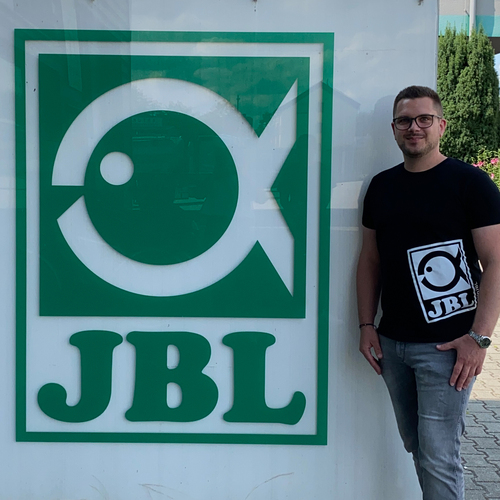A small village called Santa Rosa, on the north-eastern edge of the Departamento de Guainía in Colombia, lies on the course of the Caño Bocon river. Nearby is the Caño Pescado, known for catfish. The rather unknown course of the river, running parallel to the Rio Guaviare (whitewater River), is a blackwater tributary of the Rio Inirida and leads into a very dense rainforest that can only be passed from the water. Via the Rio Inirida, the water continues to flow towards the Orinoco.
#jblexpedition
In Episode #04 of TROPENFIEBER - Hobby meets Nature, Gordon Bonnet, Managing Director of Wirtschaftsgemeinschaft Zoologischer Fachbetriebe GmbH (WZF), describes his impressions of life in the small indigenous village community, which leads a life in harmony with nature from farming and fishing.
We spent one night and two full days together in this place with a breathtaking night in the tent with impressions that initially did not let us turn a blind eye. Living together with the villagers and exploring nature on site was unique in a way that no conventional trip into the wilderness can be. Although there was no electricity, no running water and very limited sanitary facilities, Gordon found it one of the most beautiful places of the entire trip.
Already directly behind the village we could find the first fish species, but also spiders, scorpions and snakes. Last but not least, some of them also directly in the village. The extent of the species richness only really became visible during the night hike. What required a lot of calm and skill to find during the day, presented itself almost by itself during the night hike. Many biotopes had an underwater landscape that was in no way inferior to an artificial aquarium.
Gordon's personal highlights around Santa Rosa include the multiple sightings of groups of freshwater dolphins with a light pink / grey colouration, which openly showed themselves to our group. But the false weaver birds, turtles, the bark scorpion and the brown-banded water snake (Helicops angulatus) will also remain lasting memories.
Of course, in this episode you will learn a few more details about the village, the school education, the food on offer, but also the excursions and encounters that Gordon was able to make on site. You can also find pictures of the breeding of "Ornamental Fish" on site in the show notes and listen to our conversation here in the episode.
Further links
Travel report of the second Colombia expedition: Wyprawa badawcza Kolumbia II
Gordon's Facebook profile: https://www.facebook.com/gordon.bonnet
Gordon‘s Linkedin profile: https://www.linkedin.com/in/gordon-bonnet-824089176/
Homepage of the Zentralverband Zoologischer Fachbetriebe (ZZF): https://www.zzf.de

